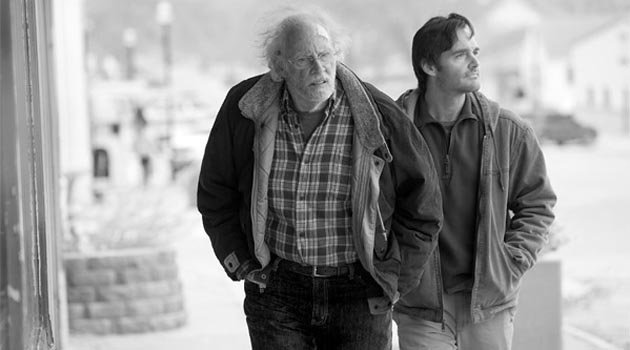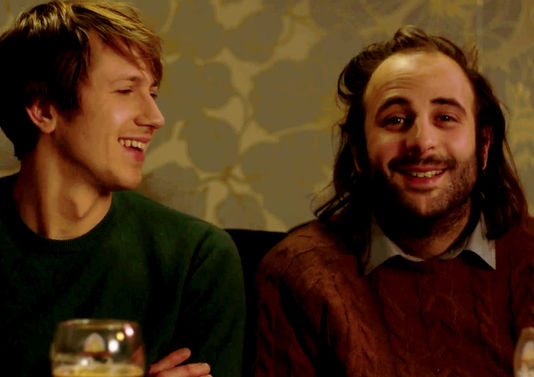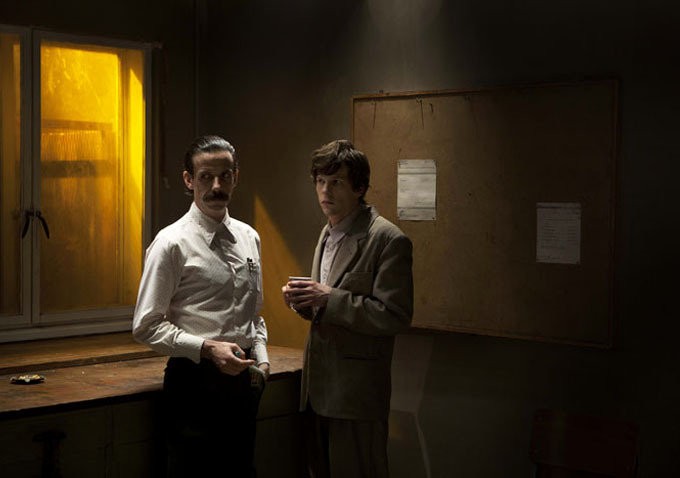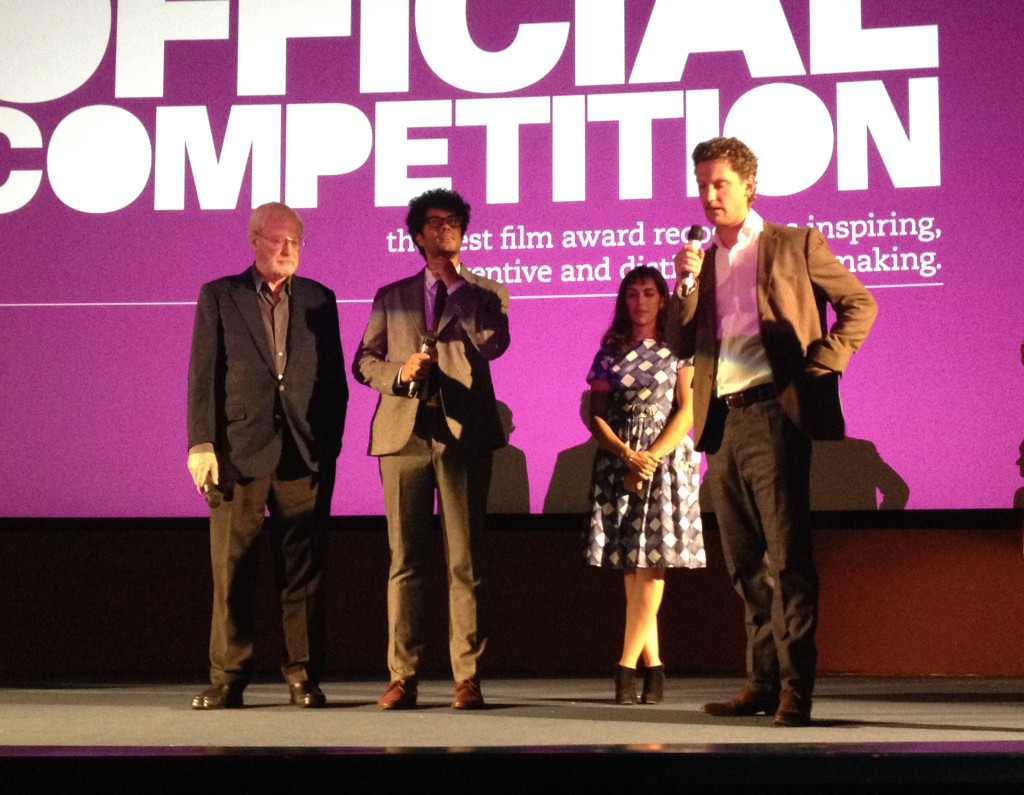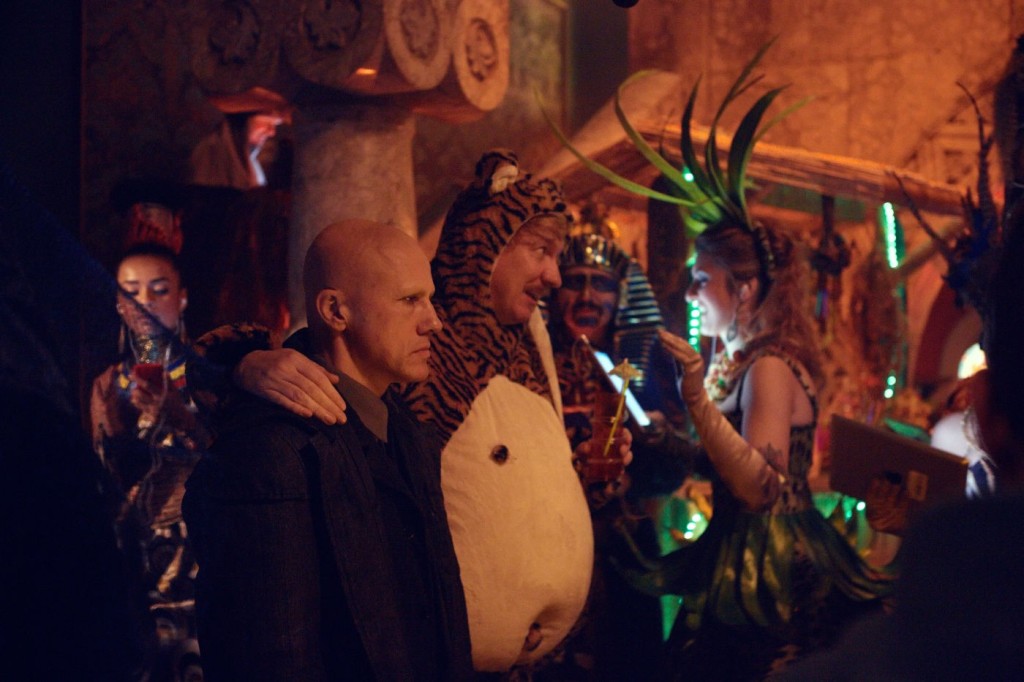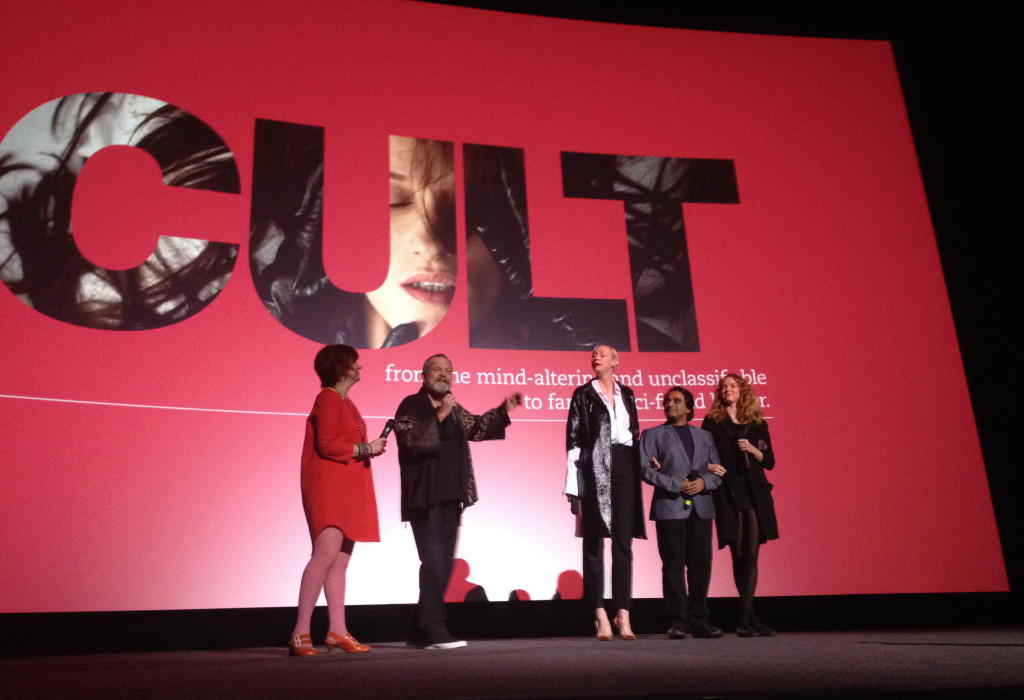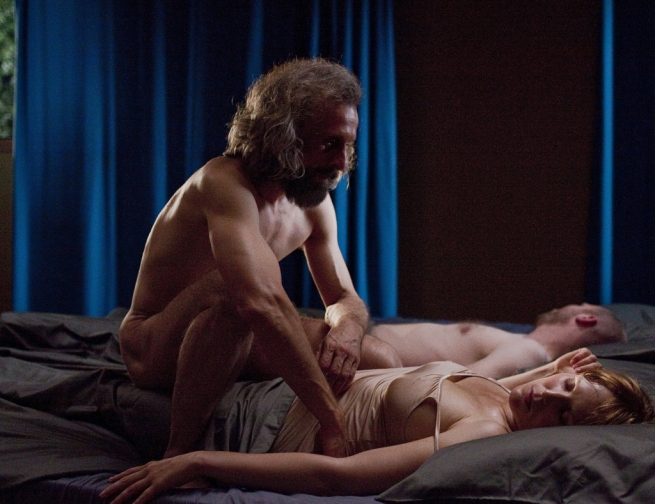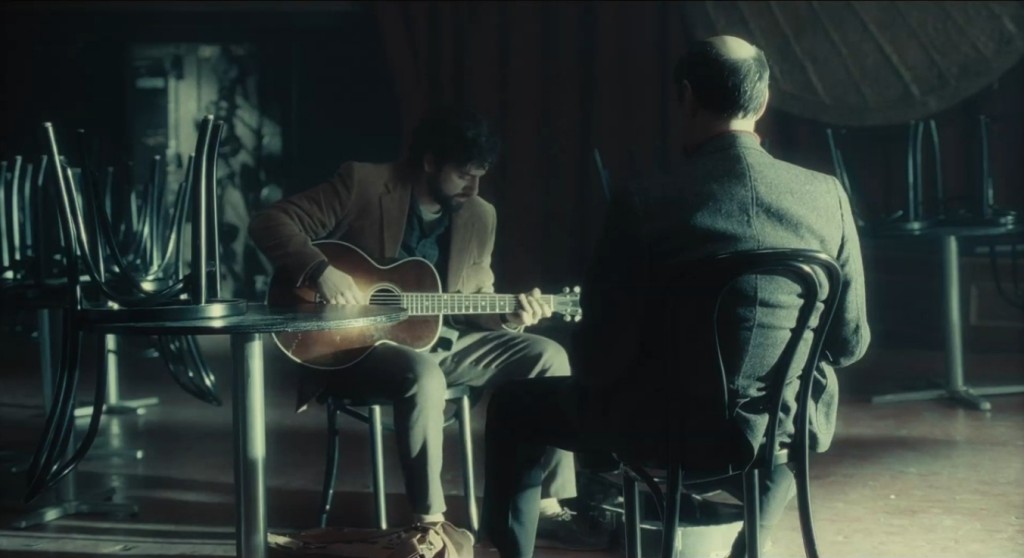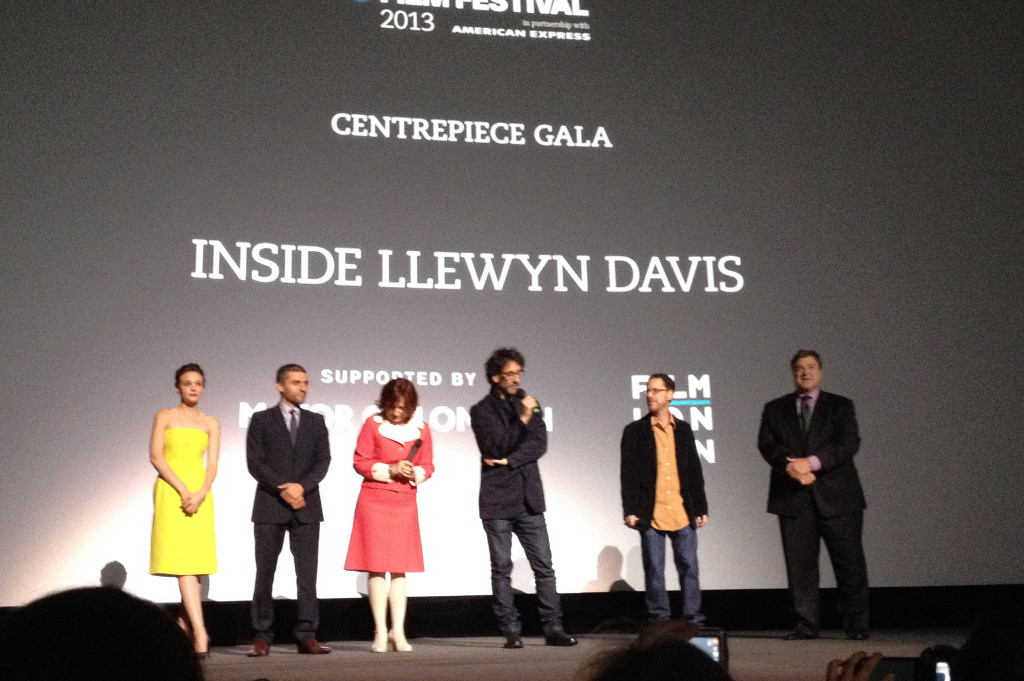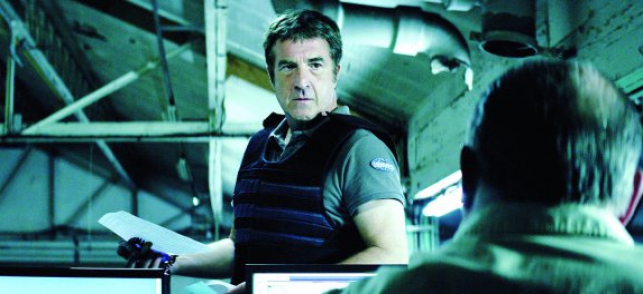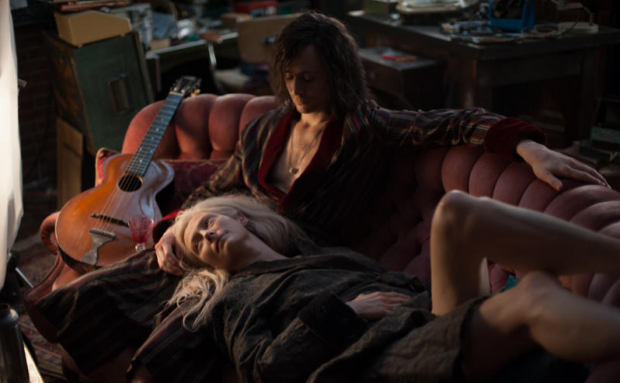The nights draw closer and the official end of British summertime approaches, which times perfectly with the arrival of the BFI’s 57th London Film Festival. This time of year never fails to excite me, particularly with a programme that ever widens with a delicious celluloid chocolate box to pick and choose from. I proclaim myself an unashamed enthusiast for all things film as it is for me the next best thing to travelling and exploration. Previously unknown cinema theatres welcome newcomers and you lay yourself witness to the eclectic crowds pursuing similar interests, ranging from bespectacled science-fiction aficionados to black-attired, silver-adorned gothic devotees, this diversity of film presented through such a festival is quite astounding. Through the visual interpretations of directors and their choice of location, I am transported for an average of 90 minutes to faraway lands, both geographically speaking and mentally. This is why I adore film; the journey that it takes me upon, left open to all consequences. Side effects of such an intensive week of cinema-going do include an overstimulated mind with much internal dialogue from concentrated isolation, switching between reality and recollected scenes from film, moments of insomnia and an irregular eating pattern (unless you decide to live off a diet of pop-corn and carbonated beverages). You have been warned.
I had sympathy this year for the customer service team at the BFI handling bookings when they opened mid-September to the eager members. The payment system had an inauspicious crash which in turn affected the entire purchasing process and tactical seating choices for the primed film fans awaiting confirmation. Social media bedlam descended and dramatic comments were bandied about actively, including threats and confirmations of disownment of membership as the toys thrown out of the proverbial prams. Who knew the consequential wrath of the disgruntled film goer??! I avoided such public displays, persevering with a more patient approach in the pursuit of film seating and was eventually guided to the light at end of a long tunnel by an extremely kind agent Magdalena on a telephone line. Patience rewarded. Tickets booked. Excited face.
So in honour of tenacity, I bring to you my Vitamin-D deprived time to contribute to your film perspectives in future.
Nebraska
Directed by Alexander Payne
USA 2013
A black and white sky in London seemed befitting for the black and white screening of Alexander Payne’s latest film, Nebraska. This premiere was part of the ‘Journey’ gala for BFI and it was entirely appropriate based on the vivid and rolling landscapes showcased so beautifully through the cinematography.
The story unfolds from the beginning with the confused and endearing main character of Woody (Bruce Dern), an elderly fellow, riddled with the usual physical afflictions of old age. His son David (Will Forte) is a simple chap, working in a local electronics shop who responds diligently to the random calls from local police reporting his father wandering the streets. The reason for his ambling is due to a letter in the post announcing him winner of a million dollars, which perpetuates his relentless quest to get to Lincoln. His lemon-tongued wife is the acidic voice of reason (superbly acted by June Squibb) and his other son Ross (Bob Odenkirk) provide the softer blows to his somewhat futile pursuit however David eventually submits to driving him to Lincoln, if anything just to humour him.
What begins as something of a pursuit for happiness (in Woody’s case a new truck and a compressor) instead turns into David’s pursuit to give his father the long deserved dignity he deserves but was never rewarded. He learns in Hawthorne, the town his Father grew up in, through old friends and neighbours, that the grumpy monosyllabic man he dismissed as an alcoholic old fool is in fact the consequence of a soft heart that trusted too often and never questioned his fate. A very moving and sardonically funny film from Alexander Payne, in the usual vein so loved in Sideways and About Schmidt.
At the end of the film, Payne spoke with the BFI Director and explained how this was the 1st script he had read, liked and wanted to direct (all previous films have been penned by him). The humour was dry which Payne appreciated and the writer (Bob Nelson) drew on his own experiences of trips to his parents in Nebraska, where they spent much time in a small, sleepy town. Payne liked the austerity and the fact the screenplay was 90 pages long. He always visualised it in black and white, something Paramount did not share his vision on initially however he persevered, albeit with a more shrink wrapped budget. Casting took over a year based on the mix of professionals and non-professionals (non-actors were sourced through the local rural radio in Nebraska, retired farmers and targeting the middle-aged children to encourage their parents to take part. The authenticity of this comes through with their warm, earnest interactions). One comment by a member of the audience to the director plucked a chord particularly with me, about the lies we tell our parents towards the end of their lives, as a way of demonstrating that we love them. Payne mentioned another comment on how the film depicts a family that has a very ‘untutored’ way of saying ‘I love you’ to each other. But ultimately, it’s these films that Payne paints visually so well, directly stating that the human touch he applies to film is what life on this planet is all about. He likes human films, good stories and not too much violence. Literate stories on people, how they always used to make them. It seems he has achieved what he wanted.
(UK Release due December 2013)
2 Autumns, 3 Winters
Directed by Sebastien Betbeder
FRANCE 2013
The screening today of Sebastien Betbeder’s film 2 Automnes, 3 Hivers (2 Autumns, 3 Winters) was at Cine Lumiere in vicinity of the Insitut Francais in South Kensington, a locality where most people walking the streets seem plucked directly from a Ralph Lauren catalogue. Suitable venue for a subtitled film, a cliché that lends itself to a more ‘intellectual’ movie due to the addition of written word on screen. I enjoy written word as much as spoken word (preferably with a delicious timbre though) so following subtitles is a well-accustomed activity that does no harm to the movie-goer. On the contrary, it would be a travesty to restrict oneself purely to our 1st languages as the original form of many films is (usually) far more rewarding. And lets be thankful we do not have to endure predominantly dubbed features either. Such a falsification of verbatim talent would be a dishonour to the actors I feel.
This viewing formed part of the ‘Love’ theme for the festival and I was immediately transported to nostalgic territory in the grey hues of autumnal Paris. The film begins with Arman (Vincent Macaigne), a 33 year old man on the cusp of making some timely birthday related changes such as quitting smoking and taking up more exercise. His pursuit of a healthier lifestyle ensures he crosses paths with Amelie (Maud Wyler), a 27 year girl who also runs in the same park, eyes down and with a rather more non-routine approach to exercise. These random quips and insights in the film are frequent, it is a very observational script providing wonderful nuances on the usual perception of love and interaction. Both Arman and Amelie take turns in front of the camera to share their back story and thoughts. As other characters enter the film, in particular Benjamin (Bastien Bouillon), Arman’s best friend from art school and an eventual lover of Benjamin’s, Katia (Audrey Bastien), they all intertwine poignantly, providing comforting smiles on the awkwardness of romantic unions and the more melancholic moments of time passing in a relationship. There are many forlorn looks in the distance, with focuses on un-emotive facial expressions, coloured with the words of the narrator so the viewer understands the cerebral context. There is humour though, it is a light perspective of everyday common problems that seem sensational at the time but in context are relatively superficial. A modern day take on romantic behaviours afflicting hip young Parisians leading fairly everyday lives.
(FRANCE Release anticipated December 2013)
The Double
Directed by Richard Ayoade
UK 2013
The official European premiere for The Double (not on general release until April 2014), the extremely animated Saturday night setting of Leicester Square was heaving with pulses, many of which were eager to find out whom was to be treading on the red carpet to the Odeon West End that night. Unfortunately many are not familiar with the name Richard Ayoade (let alone on the correct pronunciation) but with prompts of his acting work on ‘The IT Crowd’ and his first film ‘Submarine’ some strained nods begin to form, however faces and names are often conflicted. The presence of a more popularly known American actor as his main character Simon (played by Jesse Eisenberg) did incite more recognisable nodding though and whilst awaiting the screening inside I was imploding in awe (personally)when Sir Michael Caine stepped on stage with Richard to introduce the film (Sir Michael is not in the film as far as I’m aware however I was humbled by his presence. It’s Michael Caine. SIR MICHAEL CAINE).
And so the film unfolded, adapting the novella by Fyodor Dostoyevsky which is demonstrated well throughout the film through awkward, undeterminable political and hierarchal settings, where shadows creep around corners along with muted extras and a monotonous grind continues daily by the working folk at a non-specific company, only known to be headed by the decorated ‘Colonel’ (played by James Fox). Simon James is an achingly uncomfortable introvert, all averted eyes and sweaty palms, particularly when it comes to the obsessive focus on the one human connection he chooses to awkwardly pursue (from behind his telescope) in the curious and beautiful colleague Hannah (played by Mia Wasikowska). Simon’s general existence is pitiful; you long for him to gain the courage to be assertive with his words and actions yet you turn away with impatience due to the continued lack of. Home life and work life are both entirely unsettled and with the arrival of James Simon at his firm, who is the exact image of his shamed face but resonates more charisma and confidence, Simon is astounded from his first introduction. As described by a colleague, Simon’s ‘non-person’ existence means no-one particularly seems to notice the doppelganger connection which only feeds Simons insecurities, particularly when James enjoys the successes that he has not in the entire (unnoticed) seven years spent at the company. It all culminates in a very poetic ending, which demonstrates the heavy philosophical influences of Dostoyevsky and the human need for connection and most importantly, the theme which remained prominent throughout, our need for acknowledgement. Ayoade has a very unique sense of humour which riddles the film, along with the discomfort of whether one should be laughing or not at the situation (one example being at Simon’s Mother’s nursing home when her elderly room dweller exclaims to Simon that he’s ‘not right’ and produces a knife for him).
I remained very engaged throughout the film, awkward humour is something I enjoy as it interferes with the a-typical cerebral understanding of comedy and with the addition of Richard and the equally befuddled Jesse on stage at the end of the film, as they shared a Q & A with the audience, you too can be charmed by his 2nd great film.
The Zero Theorem
Directed by Terry Gilliam
UK/US 2013
A sleep deprived mind was the perfect state to watch the ominous (although somewhat accurate visualisation of modern-day Westernisation) paranoid world of Terry Gilliam in The Zero Theorem. Science Fiction movies are not typically a genre I gravitate towards, however I admit with the lead role being taken by Christophe Waltz, I did submit to a momentary diversion based on his excellent previous performances. And I encourage inherent fans of certain genres to break free from their boundary of film on occasion, it does one good not to restrict oneself to just comedy or just romance. It all helps to broaden the imagination that we tend not to invest as much time in as when we were a child.
Christophe plays Qohen (“that’s ‘Q’ no ‘U’, H-E-N”, a line he religiously repeats due to his Supervisor’s constant mispronunciation), a computer based genius tasked with hacking the ‘Zero Theorem’ for his demanding ‘Management’ played by Matt Damon. The world that Qohen occupies drifts between the chaos of an overstimulating, noisy and brash outside world and his old shell of a home, an abandoned church, littered with relics of a lonesome life and interrupted frequently by representatives of the Management and a playful love interest Bainsley (played by Mélanie Thierry), all intent in the purpose of distracting Qohen from his computer based tasks. As Terry supports at the end in his Q & A, the film is both love story and depiction of the surrealism of our electronic obsessed modern day world. Not an entirely new premise (I fondly remember the maddening existence of humanity of Terry’s previous film Twelve Monkeys) however another reminder of our submission to an Apple Age of living, where being plugged into something is far too readily accepted. As a Gilliam novice and with a suppressed acceptance that we have submitted to this lifestyle, the film was fascinating viewing for me as it was not something I usually exposed myself to. All the interactions, set props and busy screen-time means you may have to watch it a few times to fully absorb what occurs in front of you however it has a very talented and popular cast and should occupy your mind-set for some time after, leaving you to question whether you too should unplug sooner rather than later.
Borgman
Directed by Alex van Warmerdam
Netherlands-Belgium-Denmark 2013
Humour, or what is to be considered ‘funny’ is as open to interpretation as the subject of what is beautiful. I had entirely forgotten that this was the theme for the curious sounding Dutch film Borgman, selected from the Laugh theme of screenings, whilst I settled into my plush cinematic setting of the Curzon Mayfair (a theatre group lovingly synonymous with World Cinema). Well-groomed locals were possibly just popping out for a film on a drizzly Monday night however my reasoning for exposure to what was to be a most surreal journey on film was completely predisposed.
Unlike previous screenings, there was no introduction by the BFI or presence of Director and cast. Our eyes were instead swiftly brought into a strange forest setting where a priest concluded Mass with a single individual, to then stride with purpose into the forest dwelling with some other menacing looking men, carrying weapons and accompanied by dogs. The opening line suggests something foreboding from the outset “…and they descended upon the earth to strengthen their ranks”. This sets the scene for a film where you feel continually perplexed on what emotional state you might experience next. Will you laugh? Quite possibly, I did. Should it be funny? Perhaps not, but it would be rude not to. As is the case I find with most European films that bear some form of abstract, slightly macabre form of storytelling (much like the Hungarian folk tales I read as a child) you never quite know what is going to happen next, as much as you think you might, you do NOT.
Borgman (played by Jan Bijvoet) is the central character that manages to somehow unlock and overthrow the domesticity of an affluent Dutch family, with the human key being Marina (played by Hadewych Minis), a wife and mother of 3 children, supported by her frustrated husband Richard (Joroen Perceval) and obliging au-pair Stine (Sara Hjort Ditlevsen). I could not explain his modus operandi or the adjoining characters that support his role, even if I wanted to. It is quite simply genial storytelling that will ensure you sit uncomfortably (as well as snigger inappropriately) at the most unexpected points, never quite reining in on what exactly is going on. This is what Borgman does throughout the film though, performing actions that you quite possibly should question yet never do. At the time of screening I am unsure if this has been picked up for distribution however I truly hope it is, because its films like this that essentially take you out of your comfort zone, always a good thing. Wince, strain smiles and be horrified at what is fine filmmaking, guaranteed to entertain you.
Inside Llewyn Davis
Directed by Joel & Ethan Coen
USA 2013
I have found the Coen Brothers have made as worthy a contribution to pinnacle soundtracks as they have their film-making abilities. Many of us will remember various songs from their past offerings, such as Just Dropped in (To See What Condition my Condition was in) by Kenny Rogers from The Big Lebowski or any number of songs in ‘O Brother Where Art Thou’. So it seemed quite befitting that they have made a film homage to the subject of folk music with Inside Llewyn Davis. In a cluttered (yet again) Leicester Square on a Tuesday evening, the red carpet was lined with eager faces hoping to spot one of the handful of actors joining the premiere. A moment of restrained excitement was reserved by myself only when passing John Goodman, a Coen Brothers stalwart and no doubt someone who will continue the tradition that Bill Murray seems to equal in Wes Anderson films.
I have to admit that by this point of the festival, I was a little weary from a gruelling self-inflicted schedule of film-watching. Seven films in the space of six days (as well as 3 full working days within that period) had made my eyelids heavier than usual but I fought back the sluggishness with a gratuitous mini-bar of dark chocolate (thank you BFI). As the heavy curtains parted, I was not completely aware of what to expect from this latest film. I was even unsure on how to react after the opening scene which spotlighted on Llewyn Davis himself (played by Oliver Isaac) strumming a song on his guitar from the stage at regular spot The Gaslight Café in New York, 1961. I almost applauded at the end of his song, being used to supporting live music at gigs but was quickly aware I was in a movie theatre environment. This happens periodically throughout the film though which has almost as much screen time for music as it does acting. Llewyn is a melancholy musician, drifting from one couch to another for a night’s sleep. Other musicians seem perpetually enthused compared to Llewyn, who never seems to receive much respite in his plight. This disgruntled nature is not blamed upon anyone though, he is resourceful when necessary and in order to get a pay check will sacrifice his personal taste on occasion for the benefit of practicing his art (as well as the potential royalties he could also have made in the process unfortunately). You may not feel pity but instead a joint frustration for Llewyn as there are various moments where one feels he is on the brink of success but then it passes him by. It opens up the discussion as to whether fate or perseverance is the key to musical infamy. Casual mentions are made in the film to a ‘Private Presley’ and his performances, as well as a legendary folk singer that picks up the mic shortly after Llewyn leaves it (being in the right place at the right time could not be more apt for this particular scene). Well written, with excellent humour and observational skills with the typical Coen touch should pronounce this another fine performance (and if you feel like clapping, just go ahead).
11.6
Directed by Philippe Godeau
France-Belgium 2012
My first and only film within the ‘Thrill’ series of the festival, this was my 2nd French film which once again brought me to the jazz infused aisles of the Cine Lumiere, awaiting the screening of 11.6. We all like to feel a thrill; through love, through dare, through boldness and I felt I simply had to experience one of these emotions from one of the titillating films on offer. What drew me to this particular offering was that it was based on a true crime which involved a distinct lack of violence. To this day, the reasoning and orchestration of the act baffles French Police which is both commendable and intriguing.
The digit-based title relates to the millions acquired by Tony Musulin (played with stoic excellence by Francois Cluzet), a humble security guard who is both affable and reliable, respected by his colleagues and leading a mysterious lifestyle that varies from the simplicity of a leftover dinner at his wife’s humble restaurant to the acquisition of a red-hot Ferrari at auction. The ownership of such a vehicle must be somewhat accessible to the South Kensington locals in my midst, however this purchase would be quite the feat for a poorly paid citizen whom you never quite know ‘how’ he makes enough money for it. The knowledge that a colleague’s payslip is on unequal paring to his ignites an understandable fury in Musulin, heightened by the management’s distinct lack of sympathy for what could essentially have meant years of under-payment. No doubt this triggers a determination to make right such a wrong and we follow Musulin in a precise execution of the perfect crime. Accompanied by a cool soundtrack that fuels the focussed control of his actions, you can never quite rationalise the reasoning behind his entire operation. Speculation is bandied about by colleagues in police interviews and family refer to Tony’s need for justice rather than the money itself, but this all lends itself to the fact that some things are best left ‘unknown’, something Musulin mentions intermittently within the film when questioned on his motive. And I have to agree. Stimulating and strangely aspirational, a heist movie in a non-traditional sense but with most of the ingredients that normally go into it.
Only Lovers Left Alive
Directed by Jim Jarmusch
USA 2013
I have long held a fascination on the subject of vampires. Not the angst-ridden media money-pot we are now exposed to, that feeds the equally angst-ridden collective that have succumb to its CGI infested screen time. The filmmaking industry will always find willing victims though, as these ancient beasts have always managed to lure us into their worlds with their promises of eternal life and magnetic prowess. So of course, I too fell victim to the screening within the ‘Cult’ theme of the festival, Only Lovers Left Alive which also promised the fine acting skills of Tilda Swinton. How could I resist?
And so I found myself in the midst of the over-populated realm of Leicester Square once again, for my final film of the festival. I had become quite attached to my celluloid adventures so I felt a little melancholy to end my film love affair however all good things must eventually. The photos for the film that I had seen prior mainly depict Adam (Tom Hiddleston) and Eve (Tilda Swinton), a married (vampire) couple leaning upon each other in a bewitchingly ardent way. Their pose could be lifted straight from a Waterhouse painting with their pale beauty. The story itself has no specific premise however this is not the purpose of the film I feel. Adam is a talented musician, living in a curtain-drawn world of instruments in his Detroit based home. Eve is an animated consumer of all things written word, surrounded by books and elaborate materials in Tangier. Like any long distance relationship, communication is through digital means and on a call to Adam, Eve senses his disillusion with the world once again. It could be a film about any passionate married couple, with one partner needing encouragement from the other to rekindle their love for the universe. If it were not for the references to personal experiences with Schubert, Byron or any other historical figure that we have been used to from book or education, you would in some ways forget they were vampires. Adam is passionate about his instruments, owning an incredible array of antiques and Eve is his adoring wife who not only encourages his music-making but positively adores sound herself (one endearing scene involves Eve dropping the needle on a Charlie Feathers record and swaying, eyes-closed to the guitar twang and lilting vocals of Can’t Hardly Stand It before a power cut pauses her rapture). Between minimal contact with zombies (the ‘living dead’ that they refer to, as in you or I), they source ways to physically sustain themselves through the acquisition of blood, via hospital contacts and other means, managing to maintain anonymity in the process. The only disruption for their romantic world is the visit of Eve’s sister Ava, who’s juvenile attitude to everything provides a sharp contrast to their otherwise peaceful existence.
There are many moments of charming humour within the film; their clear adoration for each other is something to aspire to and the natural dynamic they have is quite lovely to watch. The script has been well researched with all the historical referencing, as well as the visual articulation (photo frames of bygone friends is a smorgasbord of intellectual and musical nostalgia). This has now become my new favourite ‘vampire’ film due to its loving cadence through music and ‘human’ interactions. Eve’s continued doe-eyed observation of the world is highly impressionable and it is quite befitting that she is coupled with Adam’s more pensive nature, providing a certain ‘light’ to his dark. It will no doubt leave a mark on many viewers, not necessarily bite-marks either as the sound-bites make quite an impact too. So be sure to settle in soon and absorb this luscious insight into 21st Century vampire life.
(1524)

